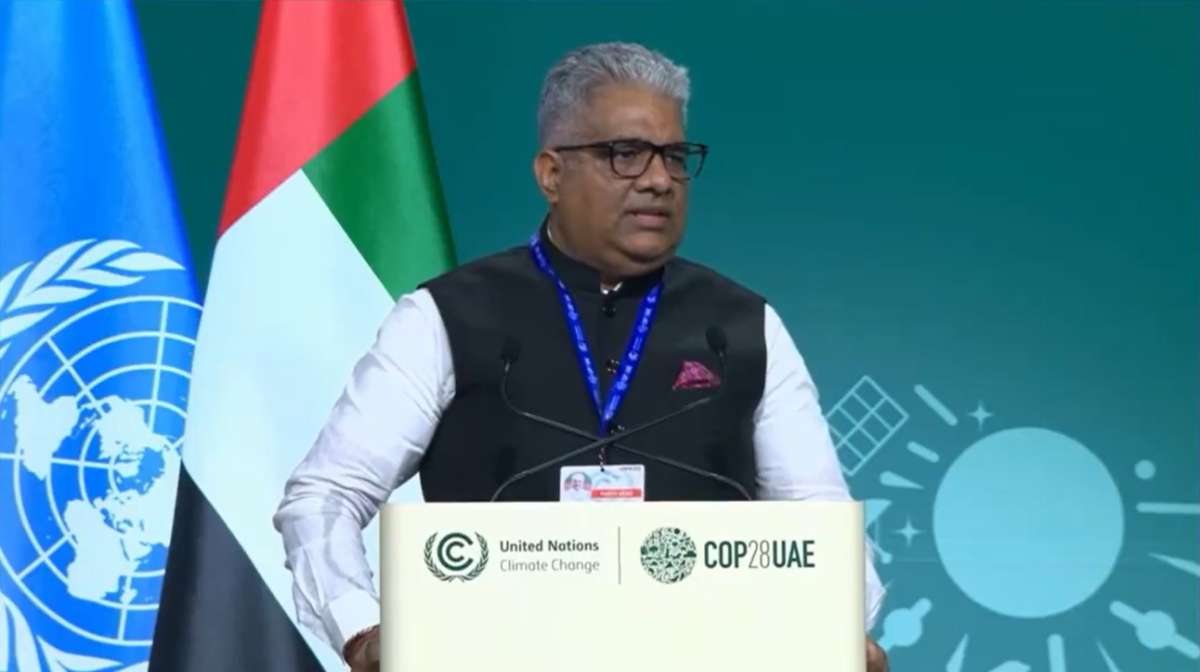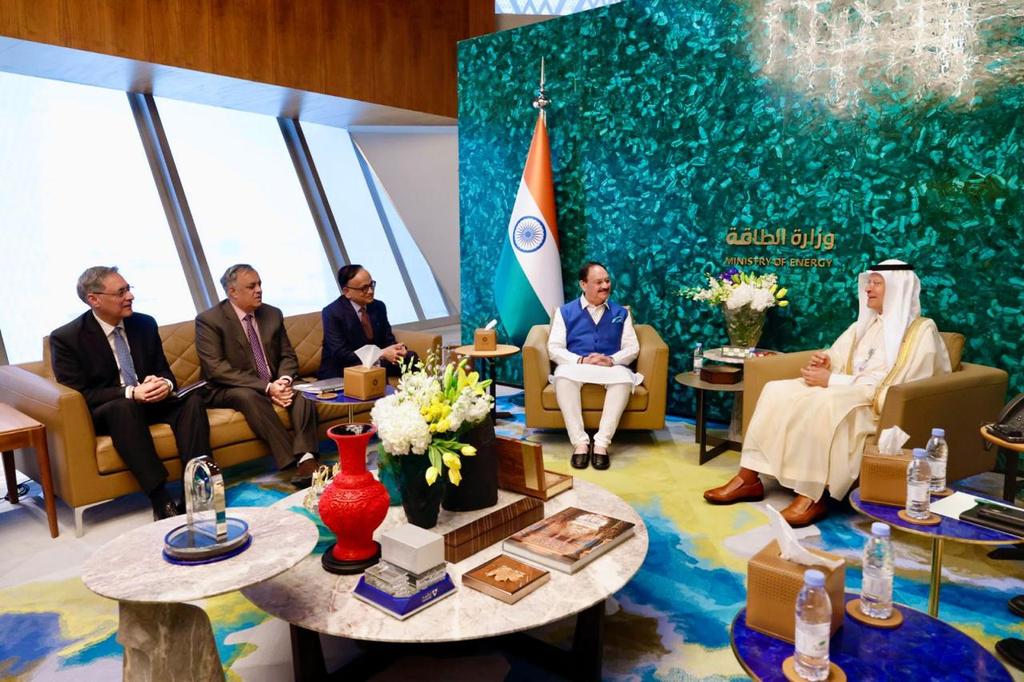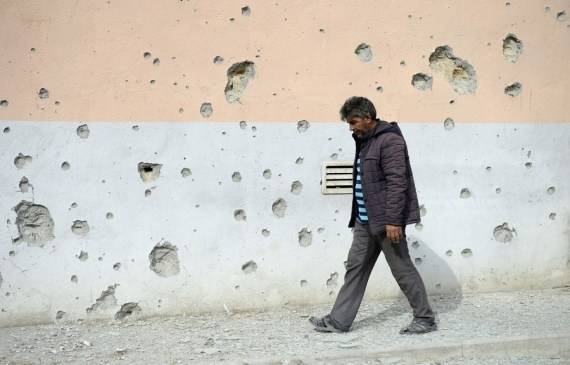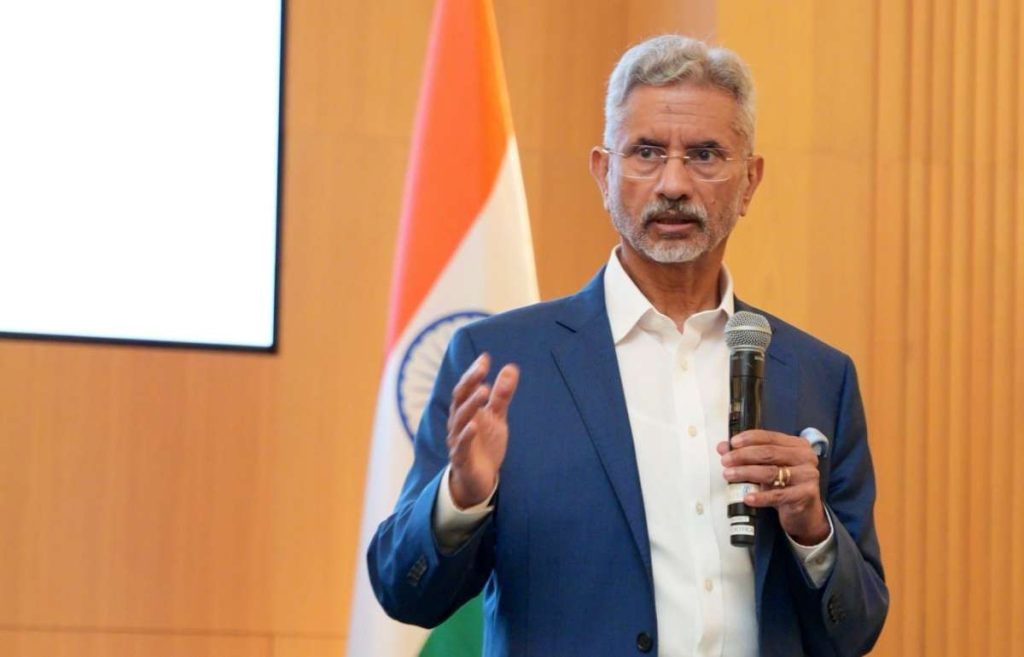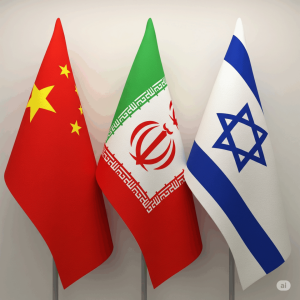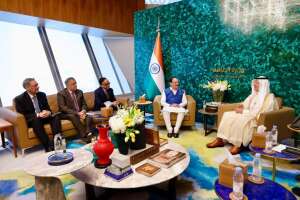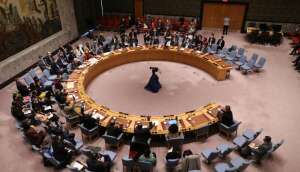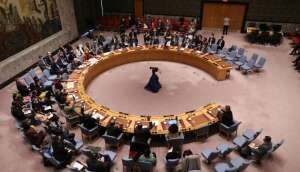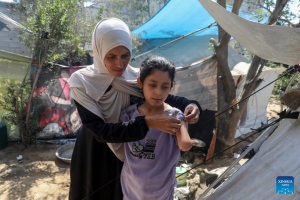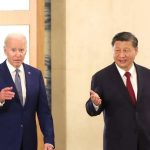At COP28 climate conference, India’s Minister for Environment, Forest and Climate Change, Bhupender Yadav says equity, justice must be the basis for global climate action, reports by Vishal Gulati
Stating that India has achieved 40 per cent of electric installed capacity through non-fossil fuel sources, nine years ahead of the 2030 target, Union Minister for Environment, Forest and Climate Change, Bhupender Yadav, said on Saturday that “equity and climate justice must be the basis for global climate action and the developed countries should take the lead”.
Delivering India’s national statement at the United Nations Climate Change Conference (COP28) here, Yadav said, “As we gather here, India looks forward to the global stocktake’s outcomes and hope they will provide meaningful and relevant inputs for deciding on enhanced climate action.
“The resource mobilisation under the new collective quantified goal must be guided by the needs and requirements of the developing countries.
“India firmly believes that equity and climate justice must be the basis for global climate action. This can be ensured only when the developed countries take the lead in ambitious climate action.”
Stating that it is of paramount importance to repose the trust and confidence in the principles and processes of the convention and its Paris Agreement, the minister said, “Let us all reaffirm our commitment to work together for the common objective for greener, cleaner and healthier planet as we have one earth, we are one family and share one future.
Expressing gratitude to the UAE government for hosting the climate talks, Yadav said India also congratulates the COP28 Presidency for steering this COP (conference of parties) as the “COP for action”, which became evident on the very first day with the successful operationalisation of the ‘Loss and Damage Fund’.
India has been at the forefront of supporting action-oriented steps at the global level in response to climate change.
“We have always held the view that people and planet are inseparable and human wellbeing and nature are intrinsically linked,” he stressed.
“The call given to the global community by Prime Minister Narendra Modi to join Mission LiFE — Lifestyle for Environment — bears testimony to India’s action-oriented approach.
“Furthering the ideals of Mission LiFE, India launched the Green Credit Initiative at COP28 on December 1 to create a participatory global platform for exchange of innovative environmental programmes and instruments.
“Earlier this year, we saw the historic adoption of the Green Development Pact by the G20 nations as part of the New Delhi Declaration,” Yadav said.
The Union minister also said that India has now finalised its third national communication based on GHG (greenhouse gas) inventory of 2019 along with initial adaptation communication.
“It underscores our consistent contribution towards climate action while also prioritising the development and well-being of our people,” he said.
To decouple economic growth from greenhouse gas emissions, he said, India has successfully reduced the emission intensity vis-a-vis its GDP by 33 per cent between 2005 and 2019, thus achieving the initial NDC target for 2030, 11 years ahead of the scheduled time.
“India has also achieved 40 per cent of electric installed capacity through non-fossil fuel sources, nine years ahead of the 2030 target. Between 2017 and 2023, India has added around 100 GW of installed electric capacity, of which around 80 per cent is attributed to non-fossil fuel-based resources.
“We have, therefore, revised our NDCs (nationally determined contributions) upwards, indicating our deep commitment towards enhanced climate action,” Yadav said.
In addition to its domestic initiatives, India’s contribution to climate action has been significant through its international efforts such as International Solar Alliance (ISA), Coalition for Disaster Resilient Infrastructure (CDRI), creation of LeadIT, Infrastructure for Resilient Island States (IRIS) and the Big Cat Alliance.
“The Global Biofuel Alliance, launched when the G20 leaders met in Delhi earlier this year, seeks to serve as a catalytic platform fostering global collaboration for advancement and widespread adoption of biofuels,” he added.
ALSO READ: Stop Fighting, Focus on Climate Justice, Children’s Plea to COP28

